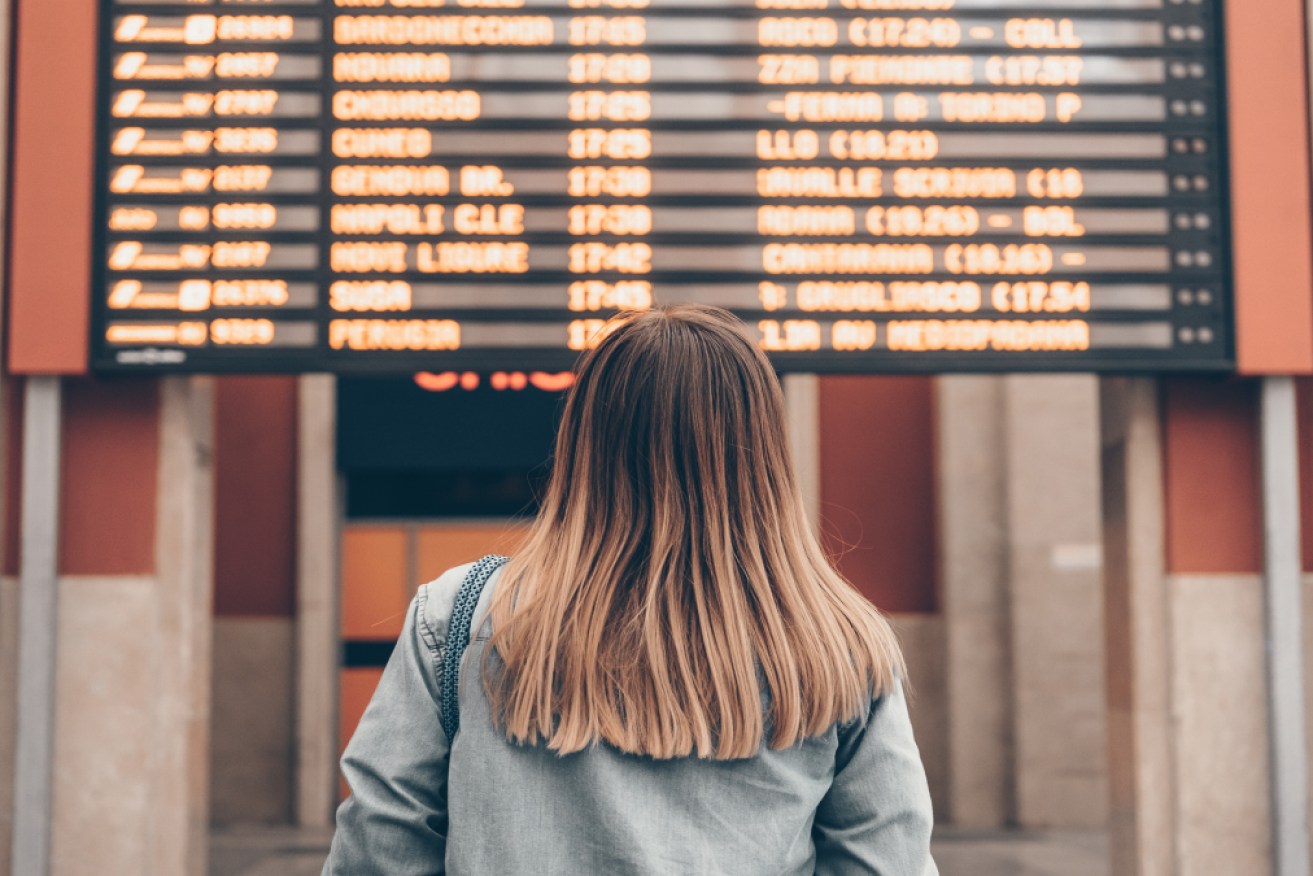Cost of living has not clipped the wings of Aussies, young and old


The crushing weight of inflation hasn't flattened the travel dreams of many Aussies. Photo: Getty
Australians are hitting pause on their travel plans as cost-of-living pressures grow, bank research shows, but travel agents say the opposite is true.
NAB found while 85 per cent of Australians have holiday intentions over the next 12 months, about two in three Australians have either cancelled or postponed their travel over the past three months.
The bank’s research also found four in 10 Australians have scaled back their plans, with some holidaying domestically rather than overseas.
But the travel industry insists Australians see travel as a necessity, not a luxury, after years of lockdowns and border closures.
Dean Long, CEO of the Australian Federation of Travel Agents, said while the number of people travelling is still below pre-pandemic levels, it is increasing.
He said high international airfares, which largely stem from airlines flying at about 70 per cent seat capacity, may discourage some travellers but there is still a “huge” level of interest.
While the high cost of travel to Europe and North America are “putting the handbrakes” on recovery for the traditionally-popular destinations, other favourites such as Fiji and Indonesia are thriving.
“It is interesting, we’re finding the Pacific is really starting to ramp back up, so Fiji has more visitors now than what they had prior to the pandemic,” Mr Long said.
“Bali has also started to really recover. [Indonesia] got a million visitors in the year [to] May.
“The US is still about half of what it was, UK still down about 20 per cent.”
However, Mr Long concurred with NAB research that Australian’s have increasingly turned to domestic travel, which has seen a “record” spend over the last few years.
Old and young travel
Michelle Ashcroft, Phil Hoffman Travel Glenelg general manager, told TND she has not seen seen a recent rise in cancellations or postponements.
“What we’re seeing is that … clients are prioritising travel as an expense that is necessary, rather than a luxury item,” Ms Ashcroft said.

Older Aussies are hitting the road and skies. Photo: Getty
Older Australians who may have paid off their mortgages, such as Baby Boomers, are booking up to three trips a year – and spending more time and money while they’re at it, she said.
Ms Ashcroft has also encountered many people aged 30 and below who have “given up” on saving for a house, and are putting their money into travel.
“For those people who are actually under 30, it’s not unusual that they’re spending $20,000, $30,000 on their travel because they’re not trying to save for the home loan anymore,” she said.
“We’re also seeing a lot of those sorts of people being supported by their parents financially.”
But one demographic in particular has seen their capacity to travel become more limited amid the rising cost of living and sky-high airfares – families.
Unless grandparents are pitching in – which Ms Ashcroft said is happening more frequently – families are having to be more conservative with their holiday plans.
“For those that are mortgaged, have kids in school, they’re definitely feeling the pinch … that’s where we’re seeing a huge difference, in that market.”
Tips for a cheaper trip
If you’re concerned about the effects of inflation on your budget, or just want to cover your bases in case you can’t travel, Ms Ashcroft said to make sure you understand the terms and conditions of your bookings from both your travel agent and suppliers.
Rebooking for a later date is also better than cancelling outright, and some travel agents may offer payment plan options so you don’t have to spend a big lump sum upfront when booking your travel, she said.
Mr Long said using an Australian Travel Accreditation Scheme-accredited travel agent will “fundamentally” help with your travel planning, and that when it comes to booking, sooner is better than later.
“There really is, for Australians anyway, this idea that you can get a last-minute deal – it’s not really the case anymore,” he said.
“Because that supply hasn’t recovered in any way, the earlier you can book, typically will mean you’ll get the best possible deal.”
He also suggested being flexible when it comes to flight routes.
An extra stop might add a few hours to your travels, but Mr Long said it could save you up to 30 per cent on your airfares – and if you choose to stay a little longer, it could provide an opportunity for a quick exploration of additional destination.
“The other really important thing … when you travel overseas is checking that travel insurance,” he said.
“Most travel insurance products won’t cover you for a change of mind [cancellation] – but do make sure you get that travel insurance when you are travelling, because if something does go wrong, it’s really, really critical.
“And the other point would be, there’s still a couple of million passports that haven’t been renewed from the pandemic, so if you’re in the dreaming stage, check your passport, make sure there’s six months on it from when you think you might be returning from the holiday and get it renewed.”








